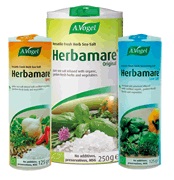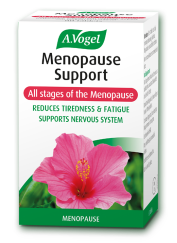What I learned about salt from my holiday in India
I have just come back from a most amazing holiday touring Rajasthan in India. The palaces, temples and forts were astounding, the people lovely and the food was awesome. Now, those of you who have read my previous blogs on diet will know that I adore food and, although I eat simply and healthily at home, when I am on holiday I do like to indulge myself! We were eating local food the whole trip so my senses were filled with mouth-watering curries, thalis, dhals, garlic naan breads and very sweet syrupy puds – heaven!
Interestingly, when I came home and had my first plate of homemade vegetable soup it tasted so bland that I was really surprised. I even had to add a good pinch of salt to it, which I would never usually do. Had my taste buds changed so much in just two weeks?
Looking back, I could see that many of those wonderful dishes were high in salt, spices, fat and cream – not things that I normally have day-to-day, and even in this short space of time my sense of taste had altered. Having been back to my simple eating for a few days, my soup (the same batch as the first one) now tastes just fine on its own! So it just goes to show that you that it doesn’t take long for our sense of taste to adapt to the food that we are eating.
So, I want to talk to you today about salt, and why we should look carefully at its role in our diet during the menopause.
What can too much salt do to you?
Too much salt is known to cause high blood pressure, which can then result in heart diseases. A sudden hit of salt, such as when eating a packet of crisps, could trigger flushes/sweats and palpitations. Too much salt can also contribute to dehydration, which in turn can cause anxiety, flushes, palpitations, joint pains and dry skin. It is also thought that falling oestrogen levels can make women more salt-sensitive, so even though you may not be taking more than usual it could start having a greater negative effect on your general health.
What foods contain salt?
Just about all processed foods, ready meals, sauces, etc., will have salt in them, including things you may not suspect, such as cereals and tins of tomatoes. Are you aware just how much you are putting on your food at meal times every day on top of what is already in your food? The healthy limit is supposed to be 6g (1 level tsp) per day but many people are unwittingly taking way over this amount!
How can I cut my salt intake down?
The best thing to do is to avoid processed foods etc and slowly reduce your intake at the dinner table.
Here is something you may not know – When you eat a lot of salt, the salt receptors in your tongue start to shut down to protect themselves against the bombardment. This is why people often find that they need increasing amounts of salt in order to ‘taste’ food. The good news is that when you reduce your salt intake the receptors eventually start to wake back up and you become far more able to taste the saltiness of mildly seasoned food. Give yourself a few days on a low salt diet and see for yourself.
Please be aware not all salts are the same!
White table salt is the equivalent of white bread – it has been processed and all the goodness taken out to make it more visually appealing. Real salt such as Sea Salt, Celtic Salt or Himalayan Salt is very different and contains a huge range of minerals necessary for our health. These salts are what is called ‘unrefined’, are not white, and are considered beneficial in small amounts.
Cut down on salt without sacrificing the flavour!
 Our Herbamare® seasoning salt range is made from sea salt dried on the shores of the Camargue in France and combined with organically grown vegetables, herbs and iodine-rich kelp.
Our Herbamare® seasoning salt range is made from sea salt dried on the shores of the Camargue in France and combined with organically grown vegetables, herbs and iodine-rich kelp.
The extra flavour imparted by the garden-fresh herbs and vegetables in Herbamare®, means that you can obtain as good a flavour in your food, if not better, by using less than your normal amount of salt. It is 100% natural, unrefined and free from artificial flavours and preservatives. There are 3 varities available: Herbamare® Original, Spicy and Low Salt.
Filling your dishes with tangy herbs when cooking, or adding them to pre-prepared foods, will give you flavour without any salty overkill.
One important point
Adrenal fatigue, which is very common in the menopause, can cause salt cravings, so if you find that you really crave salt and must have it regularly, this should be checked out by a practitioner. Adrenal fatigue is not really recognised by the medical profession but an experienced Complementary Practitioner will be well aware of it. Adrenal fatigue can cause many menopause-like symptoms and sometimes it can be difficult to pinpoint which is causing what.
What happens if you are not getting enough salt in your diet?
Seems unlikely, doesn’t it? But this can happen in the menopause. If you have either been put on a low salt diet by your doctor or you have decided to cut right down yourself it may be a factor in your symptoms as well especially if you are getting lots of flushes or sweats!
One of the things that sweating does is secrete salt onto the skin and the more dehydrated you are the worse this is likely to get. Low salt can cause symptoms such as headaches, nausea (even vomiting), fatigue and muscle spasming so if you have found that nothing seems to help these symptoms, and you are very careful about your salt intake, do go and ask your doctor to test your sodium levels.
Have you cut down on your salt in the menopause, and if so what benefits have you found?








